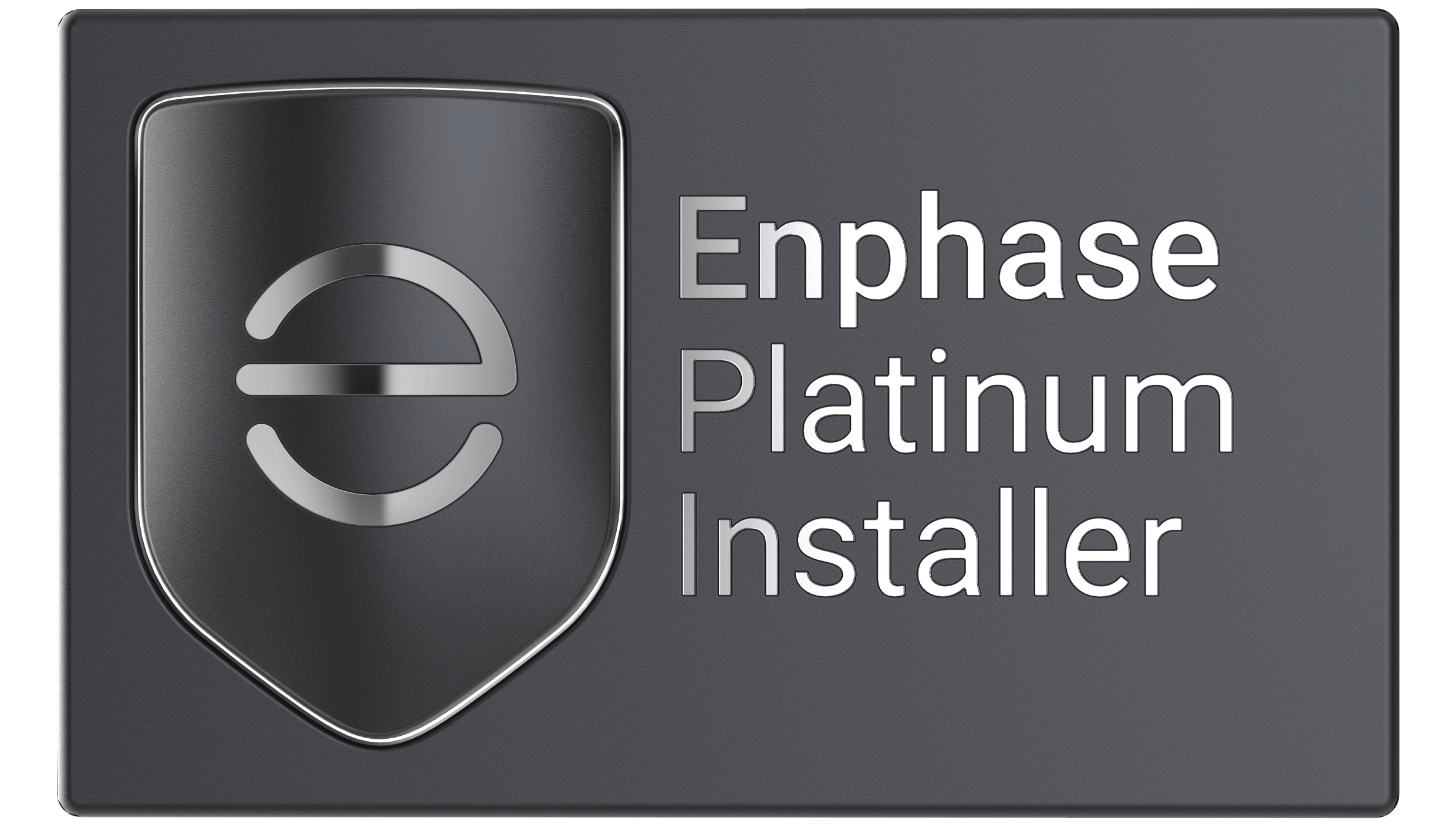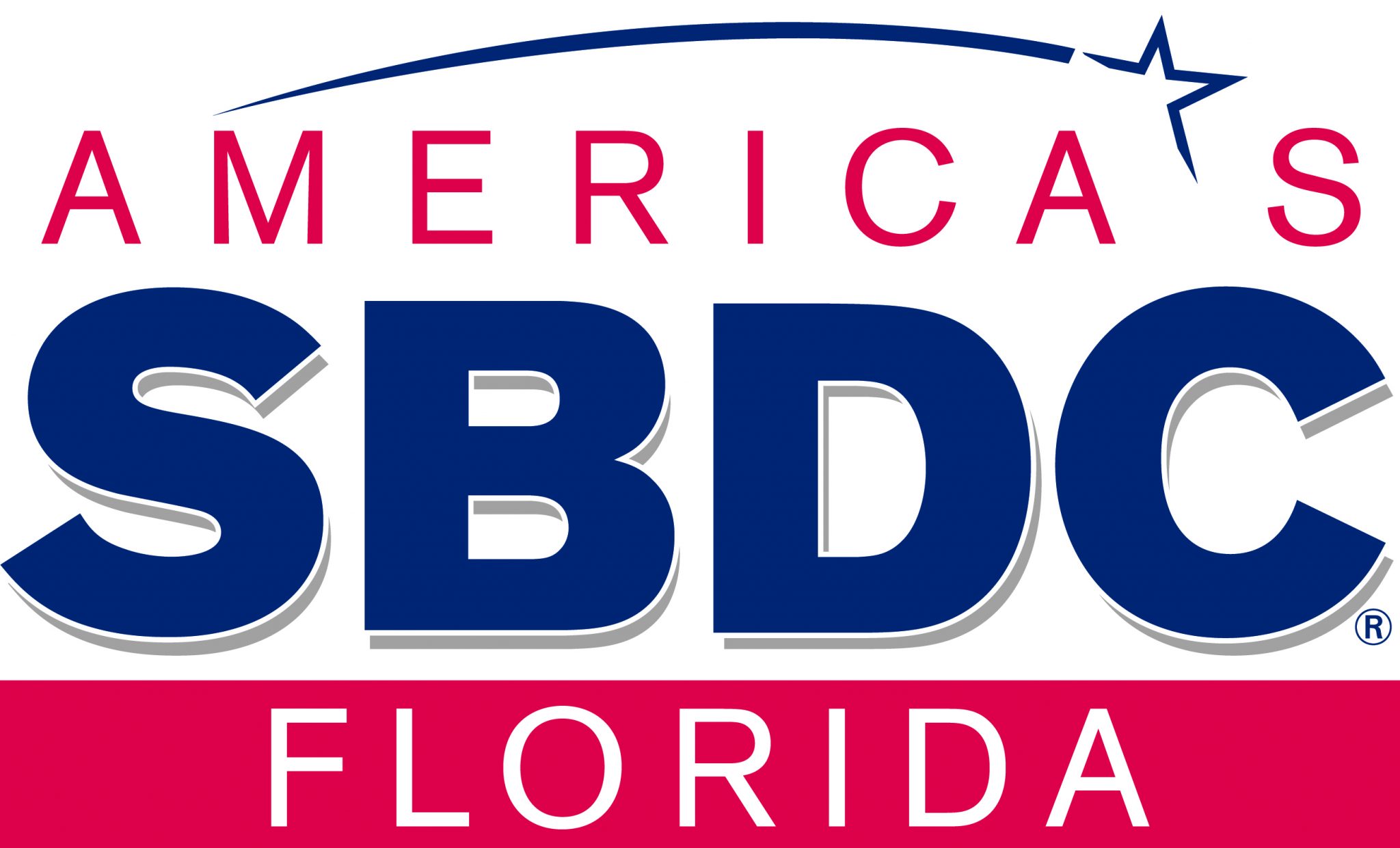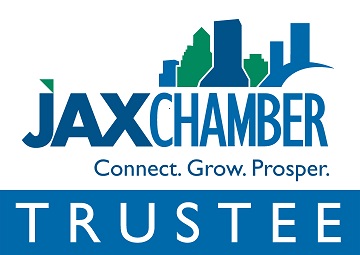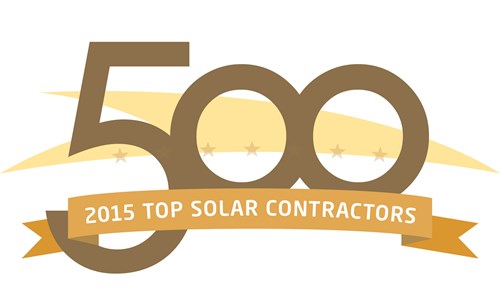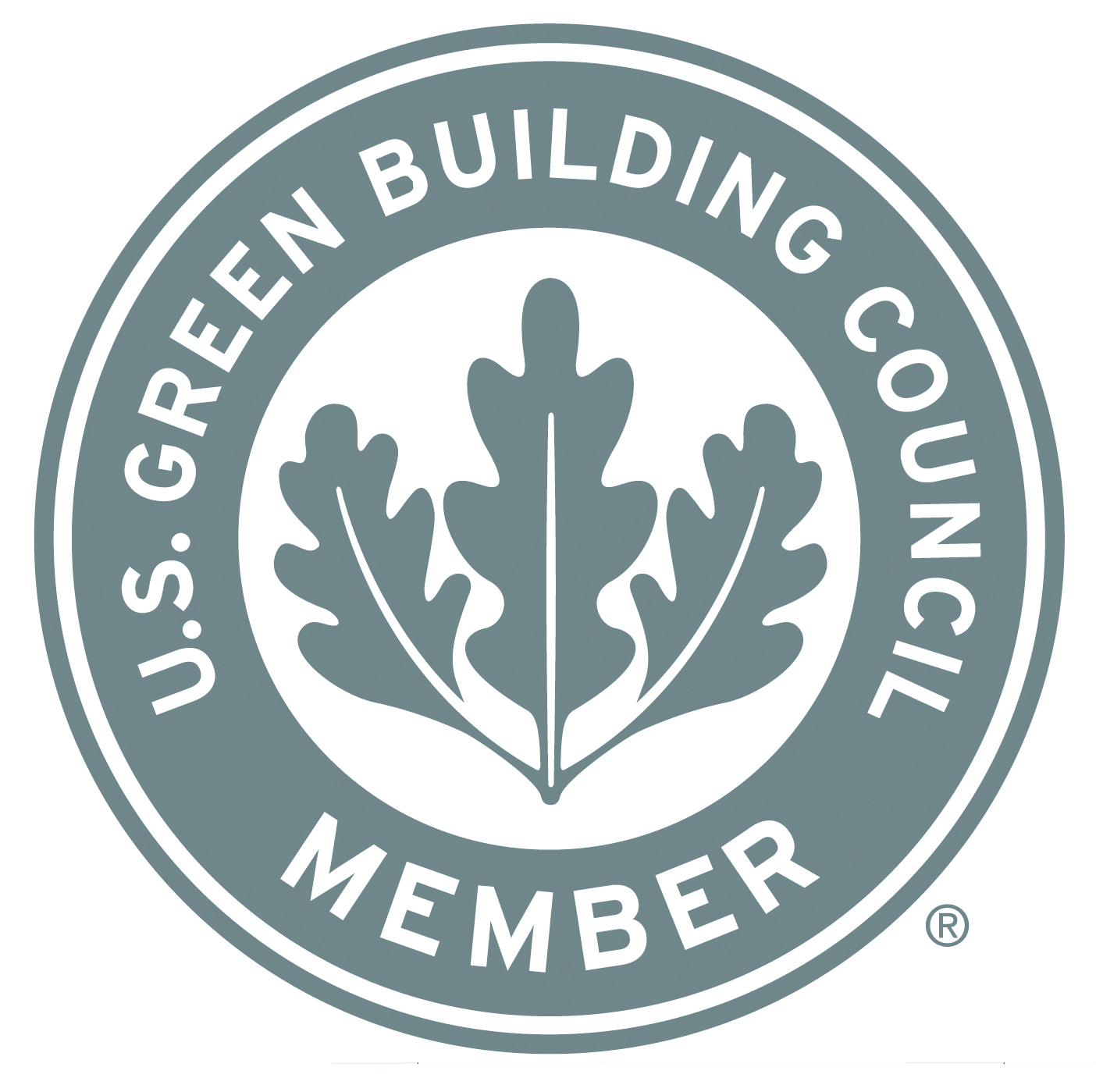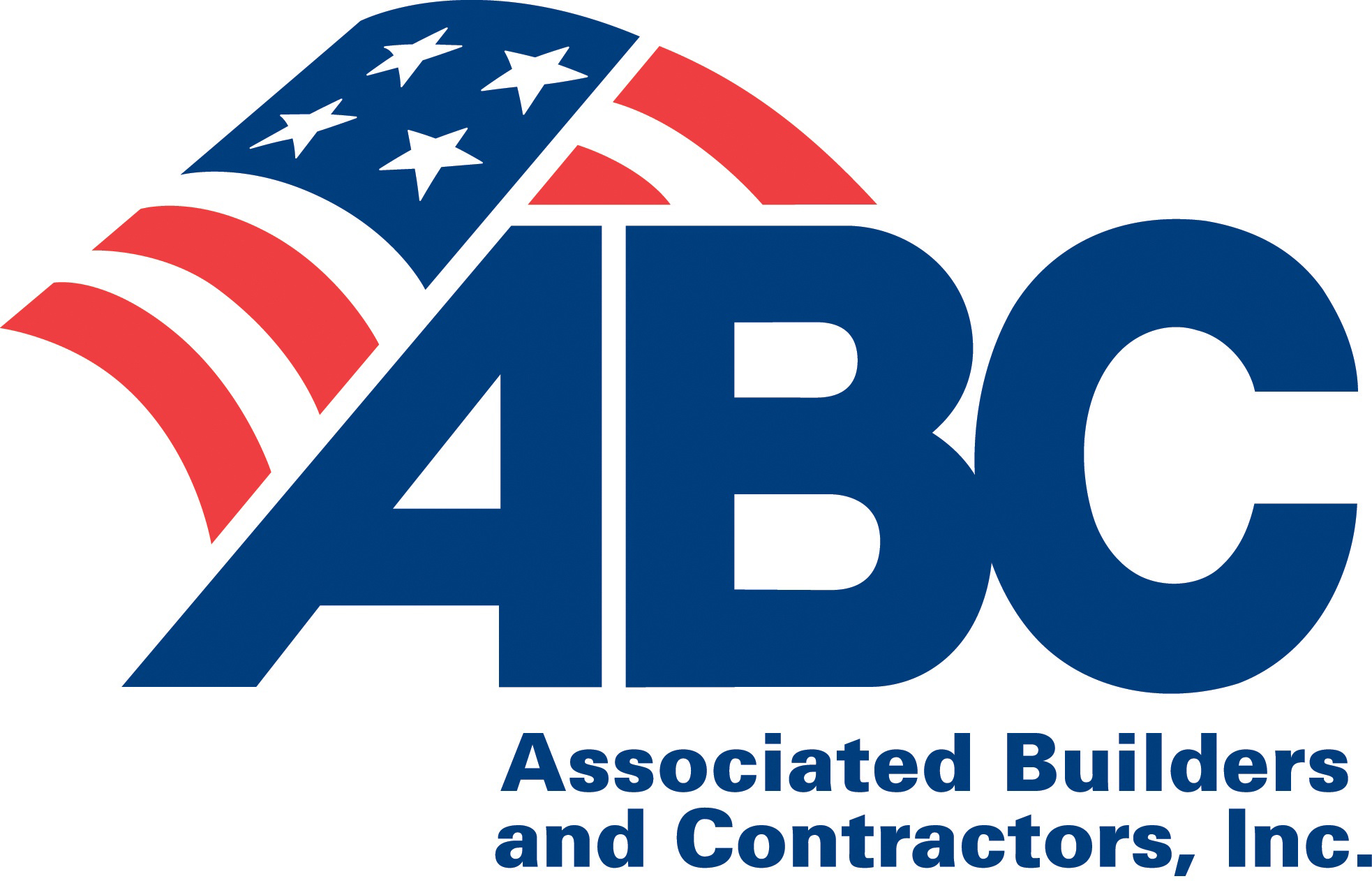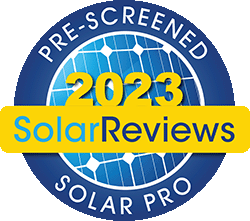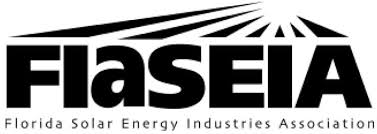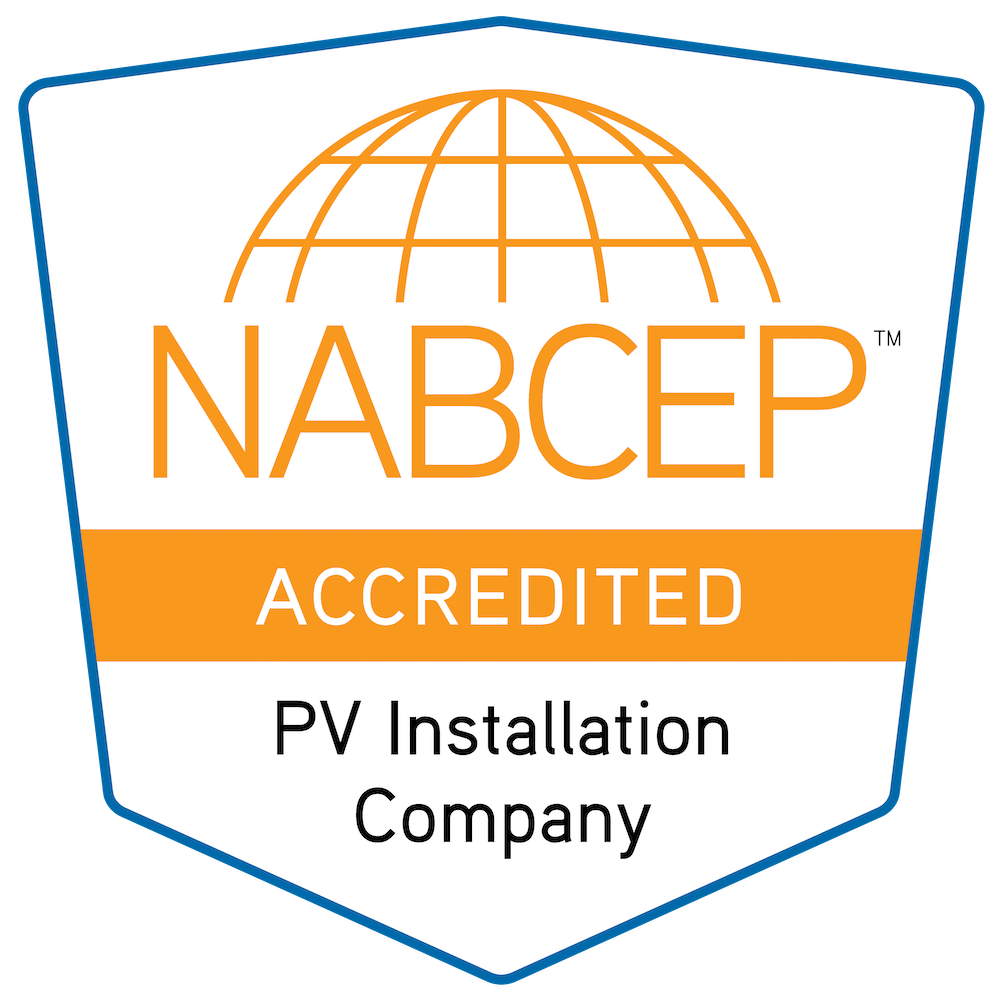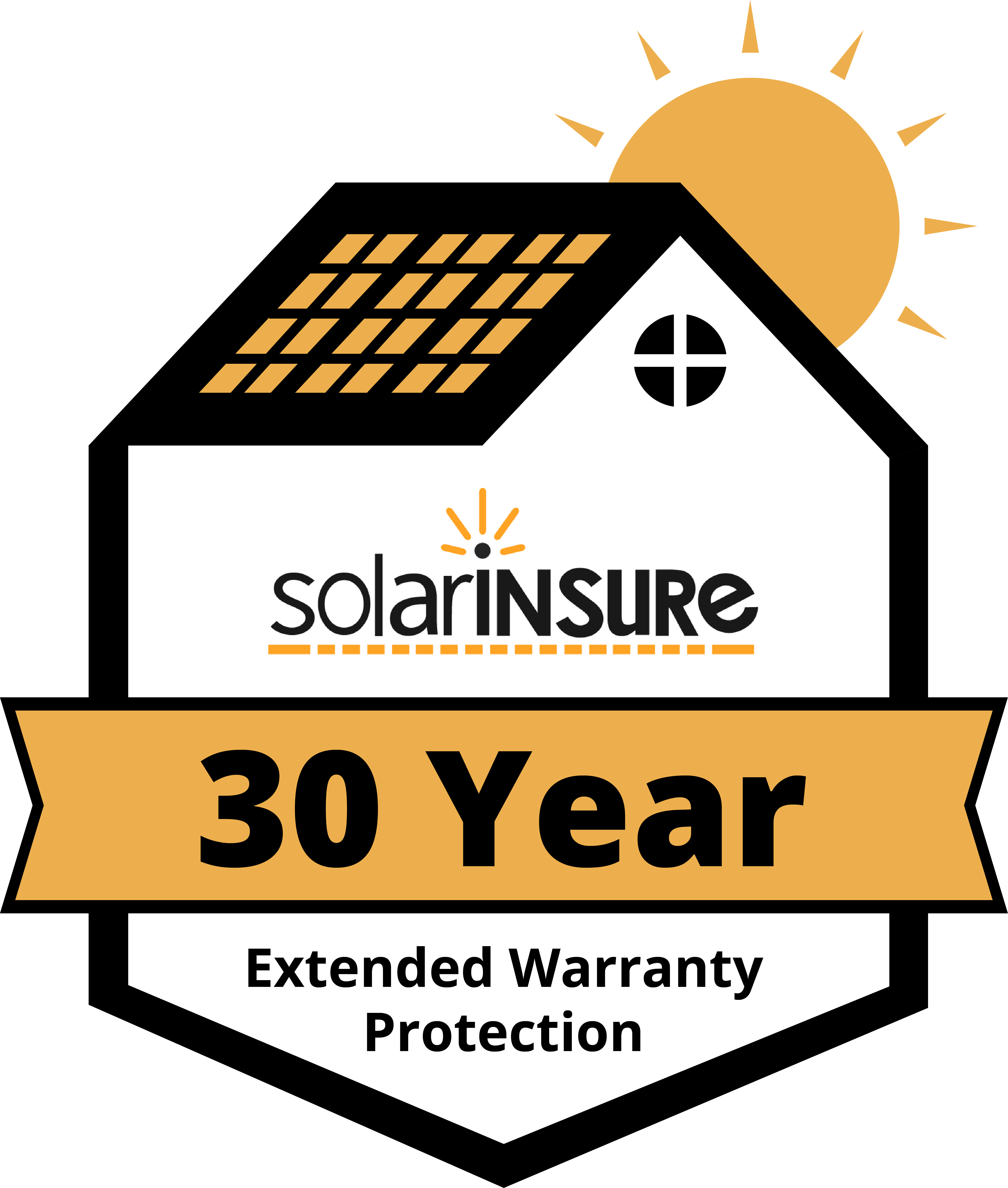You’ve decided to go solar … now what?
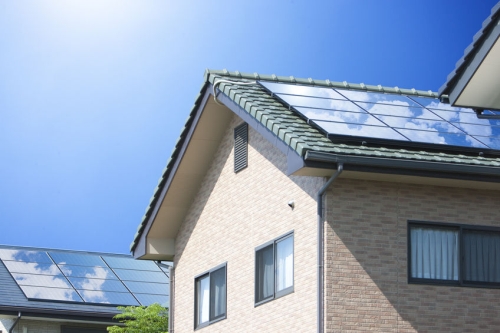
Learn how A1A Solar makes the installation process a breeze

You know you want to switch to solar-powered energy; however, you don’t know what’s in store for the installation process. The northeast Florida team at A1A Solar will make the process painless and ease any anxieties you may have. A1A Solar follows six simple steps to ensure your home or business is set up for success.
Step 1: Initial on-site consultation
The A1A Solar team will meet you at the location of the proposed installation (note that this consultation is completely free of charge). The team will evaluate the space, go over your current energy bills, and design a system that specifically meets every need in order to get your desired outcome. Once you decide to go forward, A1A Solar will assist with financing options.
Step 2: Contracts and approvals
The engineers at A1A Solar will look over the space to see what requirements are necessary for installation. A1A Solar will submit all of the permitting and utility licenses that you need, along with an application to your HOA, if necessary. A1A Solar will then gather all equipment for your personalized project over the next few weeks, while the permitting and licensing process takes place. Once the A1A Solar team receives all the required parts and approval on licenses, they will schedule your installation.
Step 3: Installation day
Installation day will start between 8 a.m. and 9:30 a.m. The crew leader will introduce the team and answer any last-minute questions you may have. At this time, it’s important to note that there should be no items blocking your electric panel, so the crew can test your system after installation.
Step 4: Inspections
Most likely, a city inspector will swing by shortly after installation day to inspect the new system, ensuring that it aligns with all codes and regulations. After the city inspections are complete, your utility provider will do an inspection and make a request for a new electric meter specifically for your solar system.
Step 5: Meter replacement
Typically, within a week of the inspection, your utility company will install an electric meter that tracks the performance of the solar energy system.
Step 6: Your new power system
Once you have your new meter, the installation process has come to an end, and you can turn on your system! Now’s the time to enjoy your new solar system, save money, and be energy efficient for the coming years.
4 things to look for when choosing a company to install your solar energy system

Keep these things in mind as you search for a solar energy contractor

When you’re considering a solar energy system for your home or business, the price of installation is often a key factor. However, it’s equally important to look for a contractor who is well-qualified. A quality installation will save you from problems down the road that cost money and time. You should look for a licensed and insured contractor, who doesn’t use subcontractors, and who uses best industry practices.
- License
The solar energy contractor you choose should be fully licensed as an electrician with a journeyman qualification. Your contractor should also be qualified to work independently. A licensed solar contractor will have met key standards, including having completed an apprenticeship. Unlicensed and/or apprentice electricians are often cheaper; however, their workmanship is unreliable. - Insurance
A solar energy installation company that has the appropriate insurance is also something to look for. You want to be sure the company insures any equipment it uses in case it’s damaged or lost. Insurance also covers water leakage that might happen after installation and any mold that results from it. This is particularly important in northeast Florida, which tends to get a lot of rain during the summer. - No subcontractors
Your solar energy company shouldn’t use subcontractors to complete the installation because subcontractors are unreliable. A company that installs your system themselves instead of outsourcing allows for a direct line of communication should problems arise during or after installation. - Experienced roofers
Solar energy system installations require roofing work, so it’s essential that the company you select uses experienced roofers. Ask the company if it installs metal flashing and 50-year sealants as its anti-leaking measures. These are the gold standards that top solar contractors use to prevent water damage to your home.
A solar energy system is a long-term investment that provides benefits for decades. Make sure you use licensed, trained professionals for your install, and you won’t be paying more later for problems down the road.
Keep your power on during an outage with a solar battery
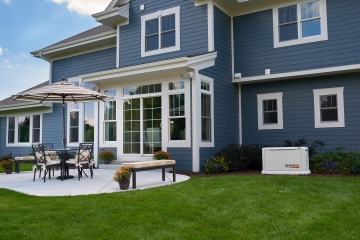
A solar battery ensures your solar energy system still works during outages

Anyone who has lived in Northeast Florida knows that bad weather conditions are common during the summer months. These conditions can take down your solar energy system. Don’t fret, though, because there’s a way to ensure that your power will still work during such conditions. Install a solar battery.
With a solar battery, you can be certain that your home or business will have power during an outage. Solar batteries look a bit like air conditioning units. Most solar companies install them in shaded areas, such as a garage or near a wall that isn’t facing the sun. They’re hooked up to your solar energy system so that your home or business will stay powered when the solar energy system goes offline.
Once you have your solar battery, all you need to do is fuel it up with natural gas or propane. If the power goes out, the solar battery will keep your solar energy system fueled while your power company works to restore your power. You can also adjust its settings so that the system powers everything that is connected to your solar energy system, or just the essentials, in case you need to conserve the battery’s fuel.
A solar battery is also a great choice because it saves you some money – if your energy company uses time-of-use charging. If you’re using net metering, a solar battery will produce little to no savings on your energy bill.
Get a 30% federal tax credit for your solar panel system while you can
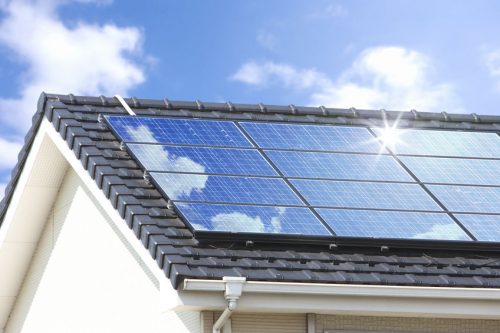
 Major savings on your solar energy system will start to disappear in 2020
Major savings on your solar energy system will start to disappear in 2020
A solar energy system is a great investment. Not only does it help the environment, it also offers significant savings on energy costs. Thanks to an initiative from the federal government, you can save even more money from your solar energy system.
The federal government is offering a tax credit for solar energy systems, including commercial and residential. You can claim 30 percent of the cost of the installation as a tax credit, as long as you’ve paid federal income taxes that are equal to or more than the cost of the savings.
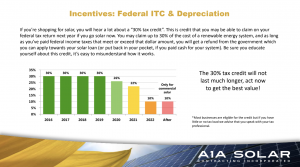 The 30 percent credit is good through 2020. Afterward, it will begin to decrease.
The 30 percent credit is good through 2020. Afterward, it will begin to decrease.
- In 2020, owners of new residential and commercial solar systems can deduct 26 percent.
- In 2021, the tax credit will be 22 percent.
- In 2022, the credit decreases significantly to 10 percent.
- In 2023 and after, only commercial owners of solar energy systems will receive the 10 percent credit. Homeowners will get no tax credit.
The savings drop drastically in 2022, and homeowners are locked out of a federal tax credit once 2023 rolls around. If you’re thinking about getting a solar energy system installed in your home or business, it’s best to do it now in order to take advantage of the 30 percent federal tax credit. As long as you own your system and the amount of federal taxes you pay meets or exceeds the credit amount, you’re eligible for the tax credit. Consult your tax professional for more information on how to claim your federal solar tax credit.
4 differences between commercial and residential solar power
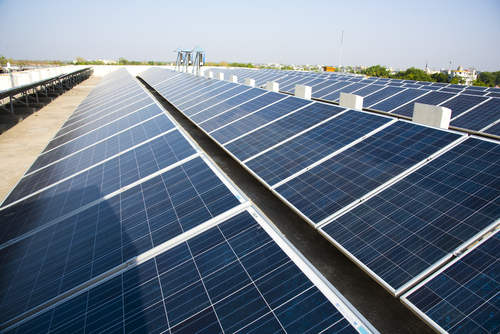
 Company owners and homeowners are increasingly looking to switch to solar energy. There are four major aspects of solar energy systems that determine whether they’re commercial or residential: efficiency, size, installation, and color.
Company owners and homeowners are increasingly looking to switch to solar energy. There are four major aspects of solar energy systems that determine whether they’re commercial or residential: efficiency, size, installation, and color.
- Efficiency — Commercial solar power is more efficient than residential solar power by roughly 2 percent. Furthermore, commercial solar power produces more power because the panels are bigger than residential panels. However, we calculate the price of solar panels by the power they produce, making a 4kW system for a residence the same cost as a commercial system.
- Size — On average, commercial solar panels are larger than residential solar panels. A residential solar panel system typically has 72 cells and is 65 inches by 39 inches; whereas, a commercial solar panel system typically has 96 cells and is 78 inches by 39 inches. Residents can have commercial-sized solar panels, as long as they don’t mind the size. In fact, commercial-sized solar panels produce more power and are more efficient, so it would be wise to consider them for your home.
- Installation — We install both residential and commercial solar panel systems the same way, by using a bolted racking system. Unlike residential roofs, commercial roofs are usually flat, allowing for an easier installation process. However, commercial systems can take up to a month to complete, while residential solar panels generally take one or two days to install.
- Color — While commercial solar panel systems tend to be white, residential systems are black or white. More often than not, residential customers want black panels on black backing and commercial customers use black panels on white backing. The color you choose depends on your personal preference.
Although there are several differences between residential and commercial solar power systems, there is one thing they have in common: They both protect the environment. Whether you’re considering residential or commercial solar panel systems, contact A1A Solar to learn more and get a quote today.
5 ways solar energy benefits commercial properties
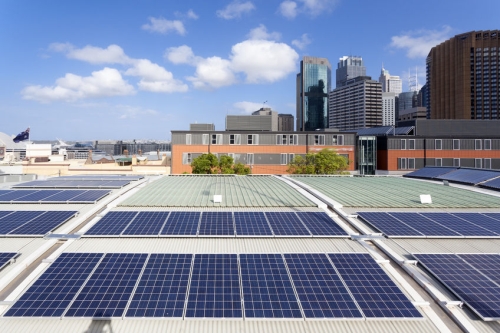

Owning a company or commercial property is a big responsibility. With energy costs continually increasing, commercial property owners are turning to solar energy to reduce overhead costs and save on utility bills. Whether you’re looking to cut costs or boost the value of your business, solar power helps increase your bottom line, while making a positive impact on the environment.
Switching to solar energy for your commercial property allows you to invest in clean, renewable energy. Solar power is an infinite resource that saves your company money, increases the value of your property, and makes you an environmentally conscious corporate neighbor.
Here are five benefits commercial solar energy provides.
1. Reduced operating costs
One of solar power’s greatest advantages is its ability to reduce utility bills for residential or commercial buildings. Installing solar panels for commercial buildings helps reduce monthly energy bills. In turn, these savings significantly reduce total operating costs.
2. Low maintenance energy
Since a solar energy system has no moving parts, it requires very little maintenance. Rooftop solar panels usually only require an annual cleaning to keep the panels performing efficiently. Keep you solar panels clean and free of debris, and they will keep producing energy for 25 to 40 years.
3. Increased property value
Incorporating rooftop solar panels to your commercial building may significantly increase the value of the property. If you’re ever looking to sell your business or property, having a renewable energy system may be more appealing to investors who are interested in a building that is efficient both economically and operationally.
4. Decreased carbon footprint
Solar energy is able to generate power while giving off zero emissions. The power your solar panels provide reduces how much your building has to rely on conventional utilities that burn fossil fuels and produce harmful greenhouse gas emissions. Investing in a solar energy system helps reduce pollution on a larger scale.
5. Green reputation
Not only does switching to solar power help protect the environment, it shows your tenants, customers, and your community that you care about sustainability. Having a company or property that is environmentally conscious generates a positive response from consumers and will give your business a respected reputation.
Whether you own a small business or large corporation, investing in a solar power system has both immediate and long-term value. Solar energy systems benefit commercial properties owners by allowing them to gain energy independence, reduce utility bills, and positively impact the environment. A1A Solar has extensive commercial experience. Visit here to learn more about how going solar benefits businesses.
How to make the most of solar energy in the summer

 We know that solar energy comes from Earth’s natural sunshine, making solar-powered systems especially beneficial during the summer months. However, while the warmer months are full of sunshine, they’re also full of heat and pollen that affect the efficiency of your solar panels. Here are a few tips to help you get the most of your solar-powered systems during the summer months.
We know that solar energy comes from Earth’s natural sunshine, making solar-powered systems especially beneficial during the summer months. However, while the warmer months are full of sunshine, they’re also full of heat and pollen that affect the efficiency of your solar panels. Here are a few tips to help you get the most of your solar-powered systems during the summer months.
Solar power and temperature
It’s easy to think a hot summer’s day would be the perfect time for your solar panels to collect energy. However, solar panels convert light into electricity, not heat. In fact, it’s a good idea to keep your panels from becoming overheated. Make sure your contractor installs your panels a few inches above your roof to allow for a convective air flow, which helps keep the panels cool. You can also request light-colored panels to help reduce the amount of heat they absorb.
Solar power and debris
In addition to heat, the summer months also bring pollen. It’s not unusual for solar panels to become clouded with dust, grime, and pollen during the summer season, and with enough buildup, this can significantly affect a system’s efficiency.Keeping your panels clear of debris is important. Fortunately, rain usually washes away most pollen, dust, and debris. If it rarely rains where you live, you can rinse pollen and dust from your solar panels with a garden hose. Be sure to use demineralized water when cleaning your panels, as hard water can cause corrosion over time. For safety reasons, it’s better to clean your panels from the ground. If cleaning from the ground isn’t possible, you may want to hire a qualified professional instead.
Solar power storage
During the summer months, we have more hours of sunshine. Taking advantage of the lasting light can help you store the electricity that your solar panels make. One way to do this is to incorporate a solar battery. Solar batteries help to store extra solar power for later use. So, if your solar panels are creating more energy than you need, the extra power goes toward charging the battery. Another way you can store power from your solar panels is to change the time of day you consume your energy from evening to daylight hours. Since solar energy only generates power during the day, use appliances like your washing machine and air conditioning during the day instead of the evening.
Keeping your solar panels performing their best during the summer can drastically reduce or even eliminate your current electricity bill.
4 reasons you should consider going solar this World Environment Day
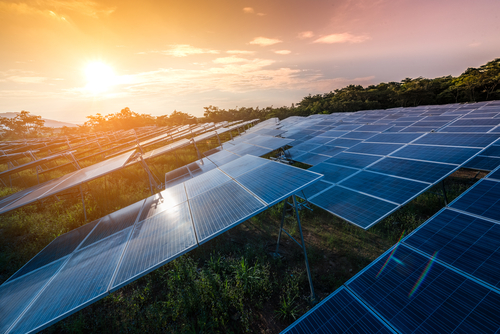
This year’s World Environment Day on June 5 is the perfect time to discover how solar-powered energy benefits the environment.
 Solar energy is a clean and sustainable way to generate electricity using the sun as an abundant energy source. Solar energy systems allow us to turn natural sunshine into usable electricity, which helps reduce air and water pollution, greenhouse gas emissions, and the need for non-renewable energy resources.
Solar energy is a clean and sustainable way to generate electricity using the sun as an abundant energy source. Solar energy systems allow us to turn natural sunshine into usable electricity, which helps reduce air and water pollution, greenhouse gas emissions, and the need for non-renewable energy resources.
While making the switch to solar power has financial benefits, the environmental benefits are equally as important. Solar energy’s positive impact on the environment is undeniable. It also provides significant benefits to our health. One of the biggest benefits of solar energy is that it doesn’t pollute the air we breathe every day. Solar power reduces the pollutants in the air and water, and it also helps reduce the risk of health issues on a larger scale.
Here are several ways solar energy benefits your health and the environment.
- Solar power reduces air pollution.
About 62 percent of the electricity the U.S. produces comes from fossil fuels like coal and natural gas. The process to get energy from fossil fuels into power lines releases carbon dioxide and other pollutants. These harmful emissions are the leading contributors to air pollution and global warming. Generating electricity with solar panels produces zero pollution and makes use of our most consistent form of energy: the sun. - Solar power reduces water pollution.
According to a recent Sierra Club study, 72 percent of all toxic water pollution in the U.S. comes from coal-fired power plants, making coal plants the main source of toxic water pollution in the country. With solar energy, there is no pollution of water sources because solar energy requires essentially no water to operate. - Solar power reduces the need for non-renewable energy resources.
Solar energy reduces the need for finite energy resources like fossil fuels. Although fossil fuels may seem abundant today, the process to get these fuels into your home is complex, and the resources will eventually be obsolete. Solar energy is a renewable resource that reduces the need for these unsustainable resources. - Solar energy reduces health issues.
Not only does solar energy benefit the environment, it also provides a variety of health benefits. Common energy resources emit harmful chemicals into the air that can cause severe respiratory issues. In addition, fossil fuels pollute water resources through natural gas drilling and coal mining. Solar-powered systems generate electricity without emitting pollutants into the air, and they don’t pollute water or strain supplies by competing with agriculture or drinking water.
Installing solar panels on your home helps to create a healthier environment for you and the people around you. As more homeowners and businesses make the decision to switch to solar energy, reliance on standard energy sources that pollute the air and water will decrease. Making the switch to solar energy on a larger scale will help reduce the risk of chronic health issues and help keep the environment safe for everyone.
Essential Parts of a Solar Energy System
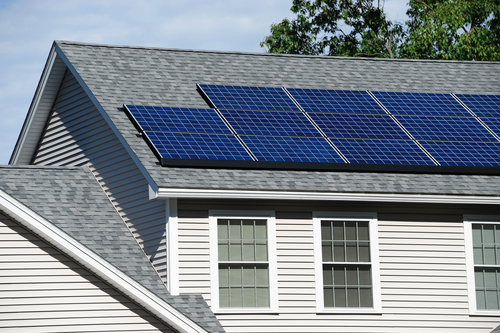
Discover what equipment makes a solar power setup work
 To someone unfamiliar with a solar energy system, it seems to consist only of solar panels mounted on a roof or a ground-based device. However, there’s a lot more going under the hood of a solar energy system. A solar energy system consists of the panels, the mounting system, and a part that converts solar energy into usable energy. There’s also wiring and a fuse box to transfer the energy to your home, a connection to a power meter, and an emergency disconnect switch.
To someone unfamiliar with a solar energy system, it seems to consist only of solar panels mounted on a roof or a ground-based device. However, there’s a lot more going under the hood of a solar energy system. A solar energy system consists of the panels, the mounting system, and a part that converts solar energy into usable energy. There’s also wiring and a fuse box to transfer the energy to your home, a connection to a power meter, and an emergency disconnect switch.
The first and most fundamental part of a solar energy system is the solar panels themselves. These devices, which often have silicone cells as their primary material, gather the solar energy in order to start the process. Without the actual panels, nothing could ever happen.
Brackets attach the solar panels to either the roof or the ground. You should mount the panels at the best angle to get sunlight in order to optimize the amount of energy gained from the system.
Some solar energy systems use tracking mounts. These mounts move during the day in order to ensure the panels are getting the most sunlight. You can also move them by hand, however, it’s much easier to let a tracking mount do it automatically.
Once the panels are set up, there needs to be a way to convert the solar energy into usable power. That’s where a DC-to-AC inverter comes in. This device converts the sunlight into energy that works with power grids. This part tends to fail first in a solar panel setup, so it’s important to check on it often, and get one that will last.
A fuse box and the appropriate wiring help connect the system to your power grid and home.
A solar energy system must have a disconnect switch. This quickly shuts down a power system in case of an emergency.
A power meter measures how much your system is contributing to the power grid. We recommend that you get a digital power meter because it’s generally more accurate than a mechanical meter.
The elements that make up a solar energy system are fairly simple when broken down. However, installing them can be difficult and best left to a professional. Contact us today if you’d like to learn more about installing a solar energy system on your home.
10 tips for picking the perfect solar contractor

Solar Power World helps prospective customers choose a quality solar contractor
 It’s no secret that solar-powered systems have seen a rise in installations in the past decade, and for good reason. Solar installations help reduce energy costs, increase home value, and are cost-effective. The problem that homeowners are facing when it comes to solar installations is finding the right solar contractor. With so much growth in the industry, solar contractors are fighting to offer the lowest price. Unfortunately, with a lower price comes lower quality work and unsatisfied customers.
It’s no secret that solar-powered systems have seen a rise in installations in the past decade, and for good reason. Solar installations help reduce energy costs, increase home value, and are cost-effective. The problem that homeowners are facing when it comes to solar installations is finding the right solar contractor. With so much growth in the industry, solar contractors are fighting to offer the lowest price. Unfortunately, with a lower price comes lower quality work and unsatisfied customers.
Ideally, a successful transaction includes a quality installment, a happy customer, and a fair profit for the company. It’s up to customers to find the right solar contractor for their home or business. Though the price of the system should be a factor in your decision-making process, it shouldn’t be the only factor.
Here are 10 tips to help you find the right solar contractor for the job.
- Verify that the company is a licensed solar contractor.
Florida, Georgia, and South Carolina residents, visit the state’s contractor verification website to find companies that have the necessary insurance policies and business licenses. This assures that they’re appropriately insured for the areas in which they operate. - Check for any complaints made against the company.
Check with the Contractor Licensing Board for any complaints lodged against the company. The Contractor Licensing Board provides all the information you need to find properly licensed professionals and allows you to verify a contractor’s license. - Verify proof of current workers’ compensation and general liability insurances.
Be sure to have the company verify its workers’ compensation and general liability insurances. This way you’ll know whether or not the company has business insurance, which makes it liable for any injuries, damages, or substandard work. - Verify that the company has workers that are NABCEP PV installer-certified.
The NABCEP is a national credential ensuring the contractor’s expertise in solar photovoltaic (PV) system installations. This certification provides a measure of protection for you by determining the ability of the practitioners. - Check SolarReviews and other online review sites.
Checking for online reviews about a business is one of the best ways to gain insight into past customer experiences. SolarReviews lets you search for specific company names and compare reviews. Google, Yelp, and Facebook are also great places to find helpful reviews. We’re proud to have earned a 4.8 star rating on SolarReviews.com, based on 127 customer reviews so far! - Request and call at least three past customers for reference, including both current and from several years back.
Once again, hearing about a customer’s past experience is a great way to learn more about the company. Although reading online reviews is helpful, having actual conversations allows you to ask more questions and get clearer information. - Find out if the company outsources its installations.
Ask the contractor if the company outsources installations, and if they do, to whom? Be sure to get proof of insurance from any subcontractors performing work for you. - Find out if the solar contracting company has received any awards locally, regionally, or nationally.
If a company has received awards for its outstanding service, this increases its credibility and recognizes the company’s dedication to the work. We’re proud of the many awards we’ve received over the years. - Visit the company’s office to assess the facility and quality of the staff.
Paying a visit to the company’s office is a great way to see firsthand how employees run things. This gives you an opportunity to speak with staff members and see if their service is right for you. - Ask about financing options available, including leases and PACE.
Make sure to speak with the company about a financing option that would work best for both parties involved. Ask the contractor about PACE (Property Assessed Clean Energy), an effective way to finance renewable energy, energy efficiency, and water conservation upgrades.


